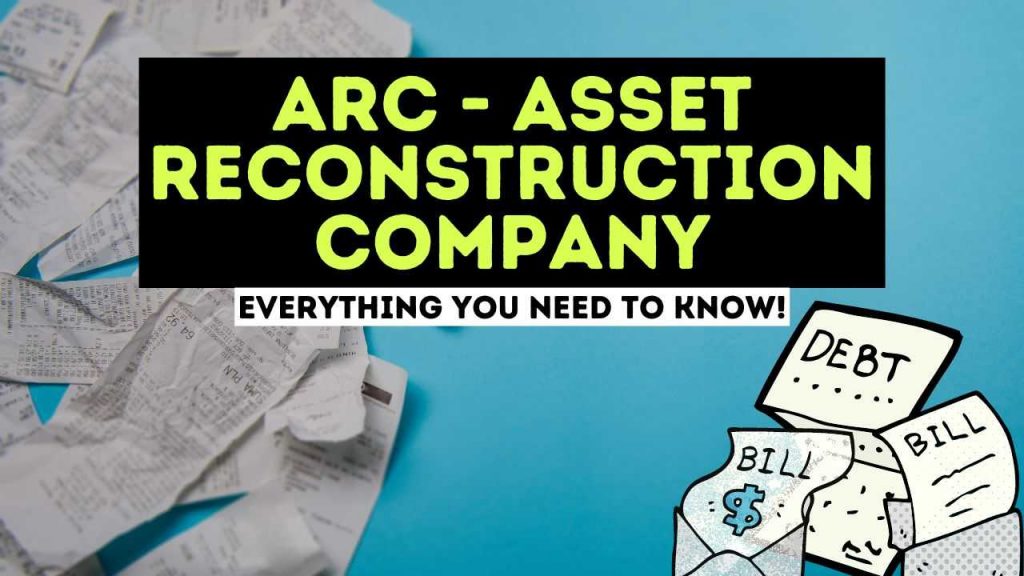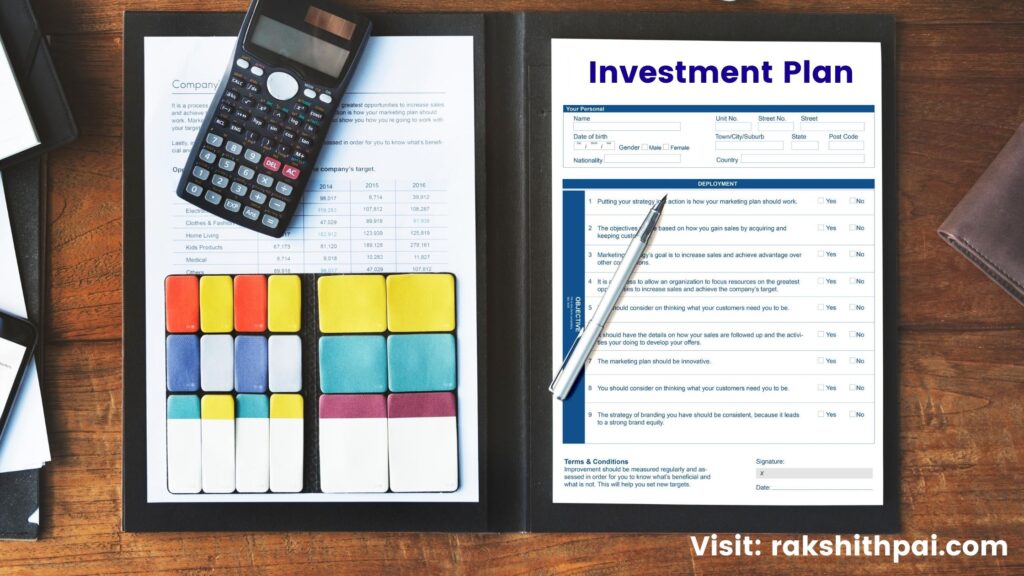Table of Contents
Introduction:
A bank is a type of financial institution that is permitted to accept deposits and provide loans. Banks may offer financial services such as capital management, currency exchange, cash deposit, etc.
Retail banks, commercial or corporate banks, and investment banks are among the several types of banks. Banks are governed by the central government or the central bank in most nations.
In India, we have the Reserve Bank of India to govern Indian banking and financial services.
Banks are financial institutions primarily involved in the business of lending and borrowing money. There are a lot of people who do business with banks, and lending money comes with a lot of risks.
While the bank always has the option of pursuing legal action against defaulting borrowers, doing so is not always financially practical. The bank may choose to simply reduce its losses, clean up its balance sheet, and keep the business moving in the right direction. An Asset Reconstruction Company (ABC) can help with this.
What is an Asset Reconstruction?
Asset Reconstruction is the purchase of any bank or financial institution’s right or interest in loans, advances, debentures, bonds, guarantees, or any other credit facility issued by banks with the aim of realizing it. The term “financial assistance” includes loans, advances, bonds, guarantees, and other credit facilities.
Asset reconstruction is the term used in India to describe the process of removing debt from balance sheets. In other nations, however, it is known as securitization. Both of these words essentially mean the same thing.
Asset reconstruction is, however, performed by professional companies in India. The sale of debt is less restricted in industrialized countries such as the United States. As a result, debt can be sold to a variety of corporate entities as well as individuals.
What is an Asset Reconstruction Company?
Asset Reconstruction Company also called ARC, is a unique form of financial entity that purchases the bank’s loan books at a mutually agreed upon price and seeks to collect the debts or underlying securities on its own.
An asset reconstruction business is a sort of financial institution that buys a bank’s debtors at a mutually agreed-upon price and tries to collect the debts or linked securities on its own.
The RBI registers asset reconstruction firms or ARCs, and the Securitisation and Reconstruction of Financial Assets and Enforcement of Securities Interest Act, 2002 (SARFAESI Act, 2002) regulates them.
The ARCs take over a portion of the bank’s debts that meet the criteria for being classified as non-performing assets. As a result, ARCs are involved in asset reconstruction, securitization, or both.
All of the lender’s (bank’s) rights to the debt would be transferred to the ARC. Qualified buyers can provide the necessary funds to purchase such debts.
Bad Loans & NPAs:
Suppose Bank has Non-Performing Asset (NPA) or bad loans worth 100 crores. These bad loans are weighing in on the bank’s books.
In order to shift the bad loans off the books and also, not to lose out on the recovery of the said bad loans, Banks hand over the loan book to a company that specializes in recovering the bad loans. Such companies are called ARCs.
Banks Classify NPA/bad loans into four categories.
- Standard debt
- Sub Standard Debt
- Doubtful debt
- Loss

In the case of Standard debt or debt secured by an asset, there isn’t much to worry about.
But in the case of a sub-standard debt, a doubtful debt, and lost debt, the chance of recovering gets slimmer and thus requires the assistance of an ARC.
ARCs acquire from banks & Financial institutions loan books that are secured by some assets such as shares, bonds, property, etc.
Debts that are considered to be a loss with no chance of recovery and with no asset backing are written off from the books. Or we may get to see the debt securitization.
What is Debt Securitization?
The act of transforming a group of debts into marketable security that is guaranteed, or securitized, by the underlying debts is known as securitization.
The majority of debt instruments are made up of bank loans to their customers, such as mortgages. Any receivables-based financial asset, on the other hand, can serve as debt security. Underlying assets include trade receivables, credit card debt, and leases.
When an investor buys stock in a firm, he or she acquires a claim on the property and cash flows. In the same way, an investor who buys a collateralized debt product has a right to the payments that will be made on the underlying debt instruments.
Why do ARCs acquire bad loans?
Asset reconstruction companies purchase defaulted debts from banks. For instance, if a bank lends money to a person or business, the bank anticipates receiving periodic principal and interest payments.
However, when these monthly payments are not received for a lengthy period of time (let’s say 90 days), these loans are classed as nonperforming assets. Allowing these non-performing assets to remain on the bank’s balance sheet erodes investor trust in the bank.
As a result, banks sell these subprime loans to asset reconstruction companies. These organizations make their money by purchasing subprime loans from banks at a substantial discount.
These businesses then take additional steps to recoup the debt. If they are successful in recovering the money, they benefit; if not, they lose it.
For example, Yes Bank Limited is filled with mismanaged loan books. These loans may never be received if left in the bank’s books. Hence, Yes Bank management intends to transfer about Rs.50,000 crores of its bad debts including those written off loans from its balance sheet.
Such a move will call for a 2-factor result.
- Yes bank books will seem to be healthy hereon with reduced bad loans.
- An efficient ARC can reduce loan slippages and recover bad loans much more efficiently than banks could ever do.
Top 10 Banking Stocks to Buy in India – 2022
How does ARC acquire such bad loans?
In terms of financing, an ARC can issue bonds and debentures to suit its needs. The issue of security receipts, however, is the primary and possibly unique source of funds for the ARCs.
Security Receipts are receipts or other securities issued by a reconstruction business (or a securitization company in that case) to any qualified institutional buyers (QIBs) for a certain scheme, as defined by the SARFAESI Act.
The holder (QIB) of a Security Receipt has a right, title, or interest in the financial asset purchased by the ARC. These ARC-issued SRs are secured by non-performing assets.
Basically, an ARC can acquire such loan books in 2 manners:
Fund Raising
ARCs are permitted to fundraise from qualified institutional buyers (QIB) in order to fund an upfront payment required to purchase reduced debts. To raise the funds, ARCs could issue financial instruments or perhaps sell shares.
The ARC, on the other hand, is responsible for ensuring that individual investors do not invest their money in these instruments. Because ARCs are a high-risk business, they are only available to QIBs with the financial resources to absorb such a loss.
By raising funds from the “Qualified Institutional Buyer” QIBs. ARC is a high-risk venture, and only non-retail participants are allowed to invest in the business. From the amount raised, ARC will buy loan books at discounted prices and if they could recover the said bad loans, they make a profit.
Partnership Model
Many times, ARCs do not buy debt directly from banks. In these circumstances, the debt is still recorded on the bank’s books. The bank, on the other hand, contracts the ARC to handle debt collection. The bank and the ARC split the money made this way at a rate that had already been decided.
In this case, ARCs will partner with the bank and financial institutions holding the bad loans. ARC will assist the institution in realizing their bad loans and in return get their share in profit.
Conclusion:
The country’s most pressing issue right now is the alarming amount of non-performing assets in the banking system. NPAs have been the subject of several attempts.
The introduction of dedicated organizations known as Asset Reconstruction Companies or ARCs, which purchase poor assets or nonperforming assets (NPAs) from banks at a negotiated price and assist banks in cleaning up their balance books, was one such serious step (by removing the NPAs).
The ARCs’ performance is being assessed in light of the growing number of NPAs. Simultaneously, the new Insolvency and Bankruptcy Act will give ARCs a crucial role in resolving problematic assets through the insolvency process.
Companies that buy poor loans from banks are known as asset reconstruction companies. If a bank lends money to a person or a firm, for example, the bank expects to be paid principal and interest on a regular basis.
These loans are categorized as nonperforming assets when they do not get periodic payments over an extended period of time (let’s say 90 days). If these nonperforming assets (NPAs) were allowed to remain on the bank’s balance sheet, they would destroy investor confidence.
As a result, banks sell these problematic loans to asset reconstruction companies. These businesses specialize in purchasing poor loans from banks at a substantial discount. These businesses then take extra steps to retrieve the money owing to them. They make a profit if they can retrieve the money; otherwise, they lose it.
FAQs:
For More Information, Watch YouTube Video:
Disclaimer: All the information on this website is published in good faith and for general information purposes only.









